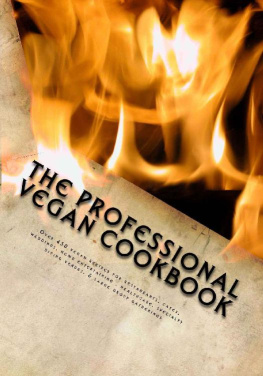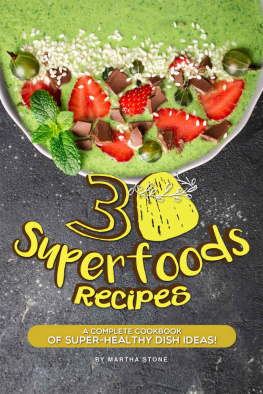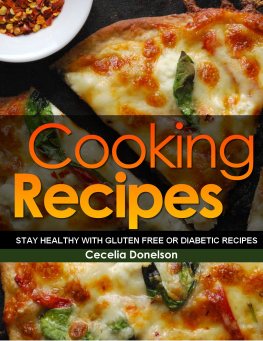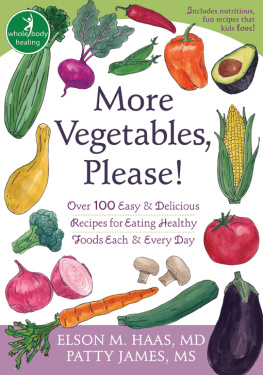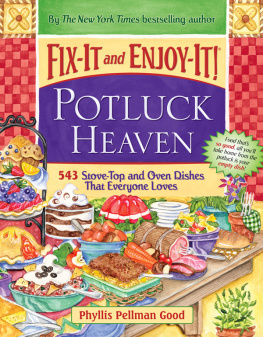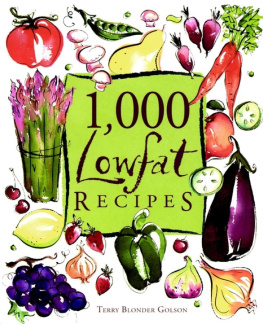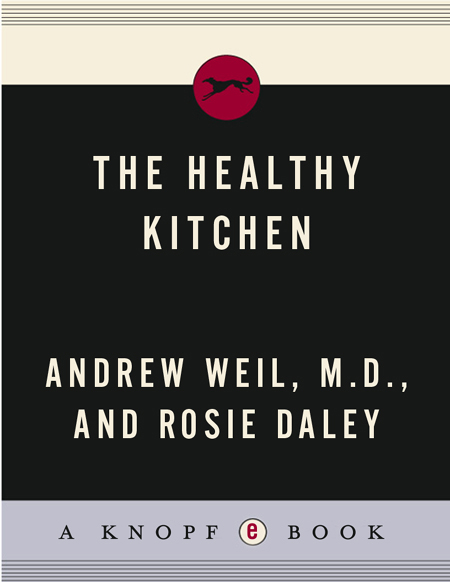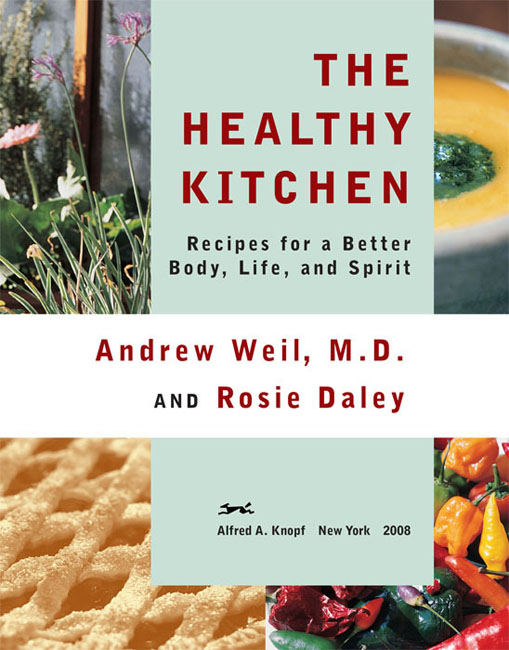A.W.
Acknowledgments
I would first like to thank all the chefs who have inspired me to be a better cook: Miceal Strout, Jeff Hampton, Deborah from Charlie's, Gordon Smith, Cal-a-Vie Spa, and so many more (you know who you are).
Thank you and congratulations to all the professional chefs who have flourished in the public eye and continue to motivate people to cook.
A special thank you to all my friends who came to many recipe-tasting parties, gave me advice, and supplied me with comments about my cooking.
Thanks to my writing team: Rachel Isabell Gomez, for being my main writer and spending enormous amounts of energy and time in rewriting and changing recipes to better suit the public; Judith Jones, my editor, who gave me more than I could ask forincomparable talent and professionalism, not to mention her love of cooking and unwavering faith in me that lifted my spirits and successfully guided me through two books.
Thanks to Lily Rose Neville, Beverly Lockheart, Marley St. John, Court Stark, Eva David, Natalie and Nicole Thomas, Danny Anderson, the Clinton O'Brien family, Ron Holder, Jill Wilson, Beverly Connors, Nan Self, and Kirt Smidley.
Thanks to the crew at Panikin Coffee for all their hospitality that saw me through my morning and afternoon work sessions.
Thank you always to all my previous employers, who gave me the chance to work with and learn from them. Thank you to Oprah Winfrey for the opportunity to share my love of cooking with such a wide audience and for giving me a reason to create my recipes in the first place.
Thank you to the group at Culinary Concepts Testing in Arizona who tested my recipes.
I am forever grateful to all the people who supported my previous book and for their desire to learn more about cooking.
Thank you to my co-author, Dr. Andrew Weil, for sharing his vast knowledge and understanding of nutrition and the immeasurable benefits that eating well offers all of us.
R.D.

Thanks to Paul Bogaards at Alfred A. Knopf for making this idea a reality. It has been a pleasure to work with him as well as with my editors Jon Segal and Judith Jones, and, as always, my agent, Richard Pine.
Dr. Jim Nicolai helped me develop and test recipes and did a great deal of work to assist in the completion of the manuscript. It was fun to cook and eat with him. Lynn Willeford also provided recipe ideas.
Thanks to my office staff, especially Michele Hardin and Debra DuBois.
Judith Berger and Suzan Gross and the rest of the staff of Culinary Concepts in Tucson provided invaluable help in testing recipes and calculating their nutritional values.
Finally, thanks to my co-author, Rosie Daley, for showing me new ways of working in the kitchen and for bringing her boundless energy and enthusiasm to this project.
A.W.
FOREWORD TO THE PAPERBACK EDITION
There have been several new developments in the related areas of health and nutrition since the publication of The Healthy Kitchen. The obesity epidemic in North America has become ever more apparent and has received an increasing amount of attention. Many more people are following the Atkins diet, which now claims some tentative support from medical research. Grassroots movements to ban the sale of junk food in school have sprung up in several states, and a few lawsuits have been filed against manufacturers of fast food by consumers who claim they became addicted to it and suffered health consequences as a result. Federal organic standards have gone into effect in the United States; in order to carry the Department of Agriculture's organic seal, products must contain at least 95 percent organic ingredients.
On the whole, people remain as confused as ever about the relationship between diet and health, and the information coming at them is often contradictory. This new, paperback edition of The Healthy Kitchen can help clarify some of the issues.
I continue to feel that the biggest nutritional problem we have is the increasing percentage of refined and processed foods the average person eats. Fat is not the issue. There are good and bad fats. Carbohydrate is not the issue. There are good and bad carbohydrates. Meat is not the issue. A meat eater can be just as healthy as a vegetarian. What is undermining our health is processed foods. They are the main source of bad fats and bad carbohydrates along with additives we don't need, and they displace from our diets the fruits, vegetables, and whole grains we do need for the protective elements they contain.
Here is my latest thinking on some of the key issues:
Low-Fat vs. Low-Carbohydrate Diets
You can lose weight on any kind of a diet; the trick is to keep it off by finding a healthful way of eating you can live with and a regimen of physical activity you can stick to. For initiating weight loss, more people find a low-carbohydrate regimen easier and more satisfying than a low-fat one, and medical research strongly supports the idea that many people are carbohydrate sensitive as a result of their genetic makeup. Carbohydrate-sensitive individuals are particularly susceptible to weight gain if they eat refined carbsthat includes products made with flour or sugar, for example. But that does not mean they should follow the Atkins diet, which is overloaded with meat and deficient in fruits and vegetables. I do not recommend it for more than short-term dietingsay six weeks or less. As a long-term strategy this way of eating puts too much of a workload on the kidneys and undermines body defenses against cancer and other chronic diseases that tend to show up later in life.
A sensible low-carbohydrate diet should include vegetable protein (from soy and other legumes), plenty of vegetables, some fruit (especially berries), the right kinds of fats (olive oil, nuts, avocado, oily fish), and some slowly digested carbohydrate foods like beans, sweet potatoes, winter squash, and whole grains (wild rice and quinoa, for example), which, along with fruits and vegetables, provide needed fiber. This way of eating can maintain optimum health over a long period and, in combination with exercise, will normalize weight even in the most carbohydrate-sensitive individuals. On the other hand, low-fat diets often make things worse for these people, because they are high in carbohydrates, including refined carbohydrate in such products as fat-free cookies and frozen yogurt.



